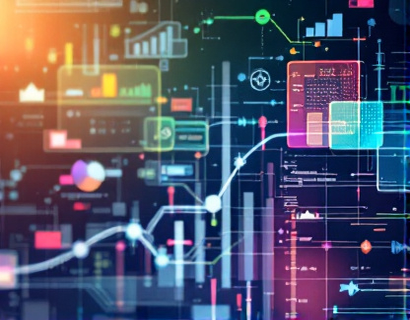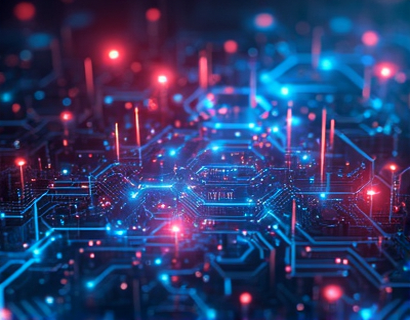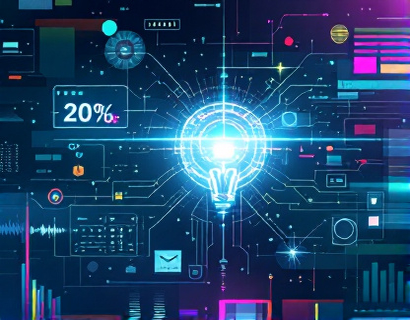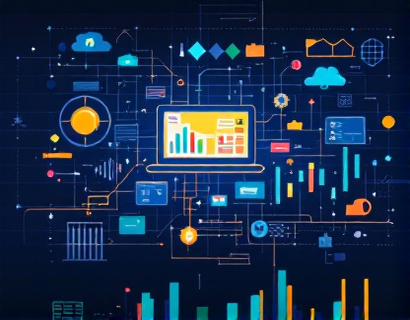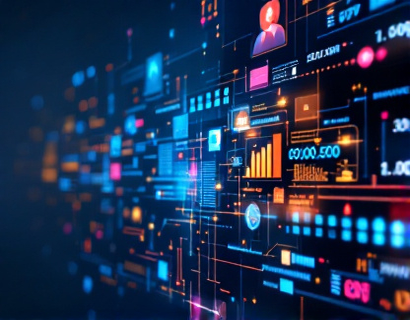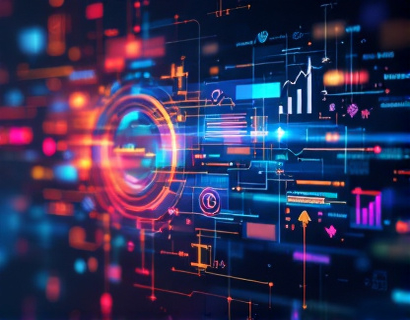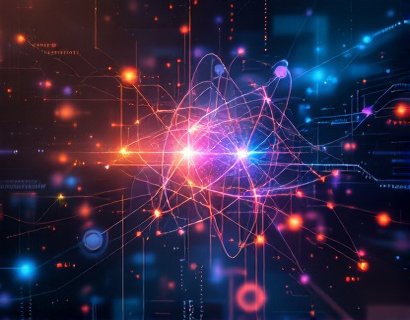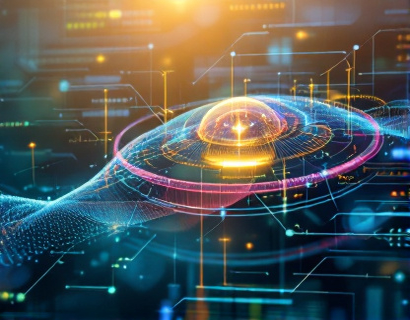Unleashing Next-Gen Productivity with AI and Crypto: A Synergistic Revolution
The integration of Artificial Intelligence (AI) and cryptocurrency is paving the way for a new era of productivity and efficiency. This synergy is not just a technological curiosity but a transformative force that is redefining how we approach work and manage tasks. For tech-savvy professionals and early adopters, the convergence of AI and cryptocurrency offers a glimpse into a smarter, more efficient digital future. This article delves into the advanced solutions that are emerging from this intersection, exploring how they can revolutionize workflow and task management.
The foundation of this revolution lies in the unique properties of cryptocurrency and the capabilities of AI. Cryptocurrency, with its decentralized and secure nature, provides a robust framework for transactions and data exchange. AI, on the other hand, brings intelligent automation, predictive analytics, and enhanced decision-making. When combined, these technologies create a powerful toolset that can optimize various aspects of digital productivity.
Enhanced Task Management through AI-Driven Platforms
One of the most immediate benefits of integrating AI with digital solutions is the enhancement of task management systems. Traditional task management tools often rely on manual input and basic algorithms, which can lead to inefficiencies and errors. AI-powered platforms take this to the next level by automating routine tasks, predicting user needs, and optimizing workflows.
For instance, AI can analyze historical data to identify patterns and trends, allowing the system to proactively suggest the best actions for users. This could mean automatically prioritizing tasks based on urgency and importance, or even predicting potential roadblocks and suggesting solutions before they become issues. Such predictive capabilities significantly reduce the cognitive load on users, allowing them to focus on higher-value tasks.
Moreover, AI can integrate seamlessly with calendar applications, email, and other productivity tools to create a cohesive and intelligent work environment. Imagine a system that not only schedules meetings based on availability but also suggests optimal times for deep work sessions, taking into account your productivity peaks and external factors like traffic or weather.
Smart Contracts and Automated Workflows
Cryptocurrency's most transformative feature for productivity is the use of smart contracts. Smart contracts are self-executing contracts with the terms of the agreement directly written into code. This technology ensures that transactions and processes occur automatically and transparently, without the need for intermediaries.
In a professional setting, smart contracts can automate a wide range of tasks, from invoicing and payment processing to supply chain management. For example, a smart contract can be programmed to release payment to a supplier once the delivery is confirmed and verified by multiple parties. This not only speeds up the process but also reduces the risk of fraud and errors.
Furthermore, smart contracts can be integrated with AI to create even more sophisticated workflows. AI can analyze data and make decisions that trigger smart contract executions. For instance, an AI system monitoring inventory levels can automatically initiate a smart contract to reorder supplies when stock falls below a certain threshold. This level of automation ensures that processes are not only faster but also more reliable.
Decentralized Productivity Networks
The decentralized nature of cryptocurrency enables the creation of productivity networks that are more resilient and collaborative. These networks leverage blockchain technology to create a distributed system where data and resources are shared securely and transparently.
One exciting application is the development of decentralized workspaces, where users can collaborate on projects without the need for centralized servers. This not only enhances security by reducing the risk of data breaches but also promotes a more democratic and inclusive work environment. Users can contribute to and access resources from anywhere in the world, fostering global collaboration and innovation.
AI can further enhance these decentralized networks by providing intelligent matching and coordination services. For example, an AI-driven platform can match freelancers with projects based on their skills, availability, and past performance. This ensures that the right people are working on the right tasks, optimizing both individual productivity and project success rates.
Data Security and Privacy
In the realm of productivity, data security and privacy are paramount. The combination of AI and cryptocurrency offers robust solutions to these concerns. Blockchain's inherent security features, such as cryptographic hashing and consensus mechanisms, ensure that data is tamper-proof and secure from unauthorized access.
AI can complement this by implementing advanced encryption techniques and anomaly detection systems. These systems can monitor network activity in real-time, identifying and mitigating potential security threats before they impact productivity. Additionally, AI can help manage user permissions and access controls, ensuring that sensitive information is only accessible to authorized individuals.
The transparency provided by blockchain also enhances trust among users. When everyone has access to the same immutable record of transactions and actions, it becomes much harder to engage in malicious activities. This level of transparency is particularly valuable in collaborative environments where multiple parties are involved.
Personalized Productivity Insights
AI's ability to analyze vast amounts of data can be harnessed to provide personalized productivity insights. By tracking user behavior and performance metrics, AI can identify patterns and offer tailored recommendations to improve efficiency and effectiveness.
For example, an AI-powered productivity assistant can analyze how a user spends their time throughout the day, identifying periods of high and low productivity. Based on this analysis, the assistant can suggest optimal times for different types of tasks, helping users maximize their output. It can also recommend breaks and relaxation techniques to prevent burnout, ensuring sustained productivity over the long term.
Moreover, AI can integrate with wearable devices and health trackers to consider physical and mental well-being in productivity recommendations. By taking a holistic approach, these systems can provide a more comprehensive and effective support structure for users.
Financial Incentives and Tokenization
The integration of cryptocurrency introduces new financial incentives that can motivate and reward productivity. Tokenization, the process of converting assets into tokens on a blockchain, can be used to create token-based reward systems within productivity platforms.
For instance, a platform could issue tokens that users earn for completing tasks or achieving milestones. These tokens can then be used to access premium features, participate in governance decisions, or even traded for other cryptocurrencies or fiat currency. This gamification of productivity not only makes the process more engaging but also aligns individual efforts with the overall goals of the platform.
Furthermore, the use of cryptocurrency eliminates the need for traditional payment processors, reducing transaction fees and increasing the speed of payments. This is particularly beneficial for freelancers and remote workers who often deal with cross-border transactions.
Challenges and Considerations
While the potential benefits are significant, the integration of AI and cryptocurrency in productivity solutions also comes with challenges. One of the primary concerns is the technical complexity involved in developing and maintaining these systems. Both AI and blockchain technologies are rapidly evolving, and keeping up with the latest advancements requires a dedicated and skilled team.
Another consideration is the regulatory landscape. Cryptocurrency is still a relatively uncharted territory in many jurisdictions, and the regulatory environment is often uncertain. Ensuring compliance with local laws and regulations is crucial to avoid legal issues and maintain user trust.
Privacy is another critical aspect. While blockchain offers transparency, it can also raise concerns about data privacy. It is essential to implement robust privacy measures and give users control over their data to address these concerns effectively.
Conclusion
The synergy between AI and cryptocurrency is poised to revolutionize productivity and task management in profound ways. By leveraging the strengths of both technologies, we can create more intelligent, secure, and efficient digital solutions. For tech-savvy professionals and early adopters, embracing this convergence offers a competitive edge and a glimpse into a future where work is not just more productive but also more fulfilling.
As we continue to explore and develop these innovative solutions, the potential for transformation is immense. The key lies in fostering a collaborative and forward-thinking community that is willing to embrace change and push the boundaries of what is possible.





